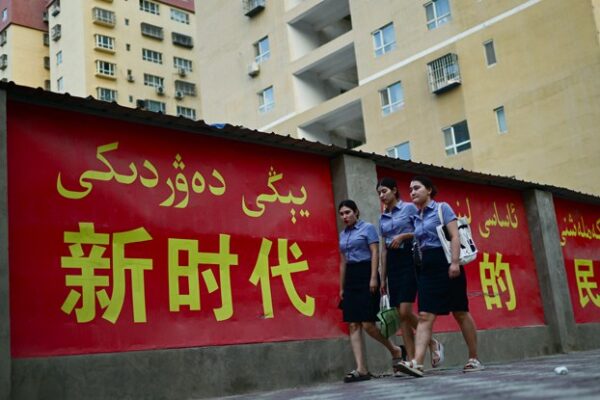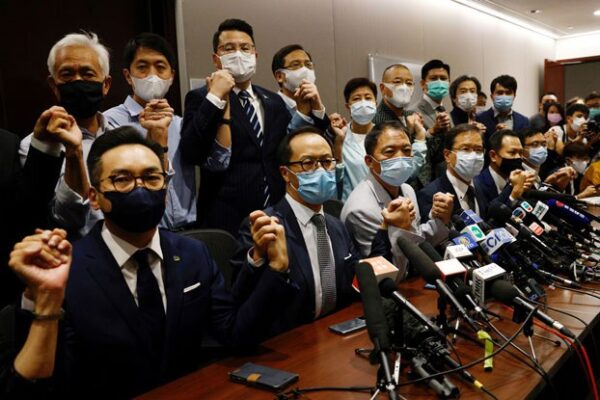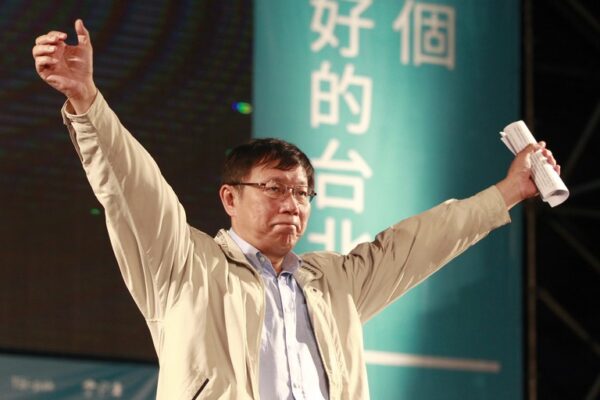According to the United Nations Food and Agriculture Organization (FAO), global rice prices in August were 31% higher than the previous year, and at a 15-year high, which has left the inflation-sensitive governments of Southeast Asia scrambling for answers. Net rice importers such as populous Indonesia and the Philippines and net exporters like Thailand alike are wrestling with a surge in prices of the staple, driven by five underlying weather and international factors. First, states are confronted by declining agricultural output due to an acute El Niño effect this year, which has caused hotter than average temperatures across Southeast Asia, and a decrease in overall rainfall. In parts of the region, this also resulted in above average haze pollution caused by wildfires, in addition to annual haze generated by crop burning. Across the board, agricultural yields have been down, but rice, which is dependent on monsoon rains, has been particularly vulnerable in most countries. A worker rakes wheat in a granary on a private farm in Zhurivka, Kyiv region, Ukraine, Aug. 10, 2023. Credit: Efrem Lukatsky/AP Second, the ongoing war in Ukraine and Russia’s unilateral withdrawal from the July 2022 Black Sea Grain Initiative has created dislocations in global supplies of wheat, cereals, and cooking oil. Before Russia pulled out, 32 million tons of grain were exported, mostly to the developing world. Although successful Ukrainian attacks on Russia’s Black Sea fleet have allowed some ships to continue exports, without a firm agreement in place, this could be temporary. Southeast Asian states are all highly dependent on wheat imports and Ukraine is the 7th largest producer, with an annual production of 33 million tons. Its exports comprise 10% of global supplies. Third, as a result of El Niño-caused heat wave and food shortages, in August 2023, India announced curbs on rice exports. India is the largest exporter of rice in the world, accounting for 40% of global supply. India’s exports account for 11% of the global rice supply. Fourth, for the lower Mekong River states, Cambodia and Vietnam, rainfall shortfalls due to El Niño have been exacerbated by China’s retention of record amounts of water at their cascade of 11 upriver dams, plunging water levels in the river to an all time low. Fifth, declines in rice yields in the net-exporting states, such as Thailand and Vietnam, have led to higher prices and hoarding. Net importers The most immediate impact will be felt by the net importers: Indonesia, the Philippines and Malaysia. Between January and August, Indonesia imported 1.6 million tons of rice – more than triple the 429,000 million tons imported in 2022. Rice prices are now 16% higher year-on-year, a rise that prompted President Joko Widodo last month to order the release of stocks from BULOG, the strategic rice reserve, to try to keep a lid on inflation. In April, Jakarta contracted to import a total of 2.3 million metric tons of rice to shore up national stocks. In the Philippines, estimates that rice production would fall by 1.8% in 2023 caused rice prices to hit a record high in September. Workers unload rice imported from Vietnam by the Indonesian Logistics Bureau at the port of Malahayati, in Indonesia’s Aceh province, Oct. 11, 2023. Credit: Chaideer Mahyuddin/AFP Philippine President Ferdinand Marcos Jr., who is concurrently the Secretary of Agriculture, imposed price caps last month of 41 and 45 pesos (US$0.72 and US$0.79) per kilogram (2.2 pounds) for average and well-milled rice, respectively. As a candidate, Marcos had pledged to bring the price of rice down to 20 pesos per kilogram. The Philippines imported a record 3.9 million metric tons in 2022-23. In September, Marcos signed a five-year purchase agreement with Vietnam, which supplied 90% of Philippine imports in 2022. In early October, Marcos lifted the rice cap, promising a slew of other measures to control prices, which remain high. Domestic rice production in Malaysia only satisfies 70% of demand, and yields declined in 2023 due to excessive heat. The government has imposed a price cap of 26 ringgit (US#5.50) per 10 kilograms (22 pounds) for domestically produced rice. Nonetheless, prices have been surging and Prime Minister Anwar Ibrahim has threatened to take legal action against hoarders. In September 2023, the government announced a 36% increase in rice imports. This month, the government announced that restaurants could purchase imported rice RM160 ($34) per kilogram, half the normal wholesale price. Anwar, who is also the country’s finance minister, has announced some 400 million ringgit ($84.72 million) in subsidies to purchase imported rice for government use, while the Minister of Agriculture imposed rice price caps in the important vote banks of Sabah and Sarawak. Net exporters Even the net exporters have seen instability in their rice markets. As the second largest exporter in the world, accounting for 15% of exports, Thailand has benefitted from surging rice prices. The announcement of Indian curbs led to a 20% spike in Thai rice prices. Thai rice peaked at $650 a ton in August, nearly 50% higher than a year earlier. Nonetheless, the country has been hit by El Niño, with rainfall down 18%. The Ministry of Agriculture and Cooperatives estimates rice production will decline by 3-6% in 2023-24, down to 25.8 million tons, while its reservoirs were at 54% capacity. Thailand usually exports half of its rice harvest. But because of soaring prices, there’s been an increase in domestic hoarding. This year Thailand is expected to export just under 9 million tons. Vietnam, the third largest exporter in the world, accounting for 14% percent of global exports, expects to harvest 43 million tons in 2023. In 2022, Vietnam exported 7.1 tons, a ten-year high. This year the goal is to export 7.8 million tons, a 10 percent increase over 2022. Vietnam has already exported 5 million tons in the first seven months of the year, an 18% year-on-year increase. Thus far, Vietnam is benefitting from surging prices, with a 30-35% increase in value in exports. But while things are good for now, diminished rainfall,…








